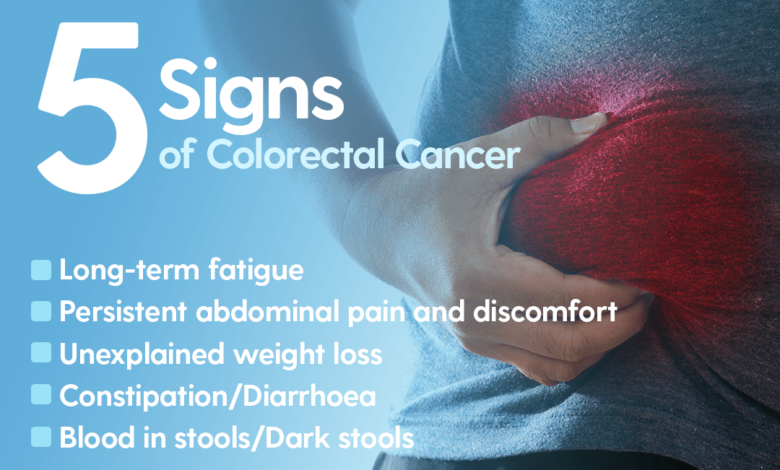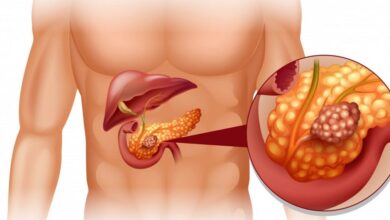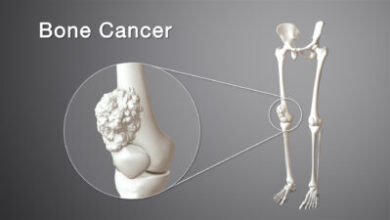Symptoms of Colon Cancer: Understanding the Early Warning Signs

Colon cancer, also known as colorectal cancer, is a significant health concern affecting millions worldwide. Early detection of symptoms is crucial to improve treatment outcomes and increase the chances of survival. This article explores the symptoms of colon cancer in detail, helping you identify potential warning signs and take proactive steps for your health.
What Is Colon Cancer? A Brief Overview
Colon cancer originates in the large intestine (colon), the final part of the digestive tract. Most cases begin as small, noncancerous clumps of cells called polyps that form on the inside of the colon. Over time, some polyps can become cancerous.
Understanding the Role of the Colon
The colon plays a crucial role in absorbing water and nutrients from food and storing waste. When cancer affects this part of the body, it can disrupt normal digestion and lead to various symptoms.
Who Is at Risk?
Risk factors for colon cancer include age (50+), family history, diet high in red or processed meats, obesity, smoking, and a sedentary lifestyle. Understanding your risk factors can help in early detection.
Common Symptoms of Colon Cancer

The symptoms of colon cancer often vary depending on the tumor’s size and location in the large intestine. While some individuals may experience noticeable signs early on, others might not show symptoms until the cancer is more advanced.
1. Persistent Changes in Bowel Habits
One of the earliest and most common symptoms of colon cancer is a persistent change in bowel habits. This can manifest as:
- Diarrhea or Constipation: Unexplained episodes of diarrhea or constipation that last longer than usual.
- Narrow Stools: If your stools are narrower than normal, it could indicate a blockage caused by a tumor.
This symptom often goes unnoticed or is attributed to minor gastrointestinal issues, but prolonged changes should always be evaluated by a doctor.
2. Rectal Bleeding or Blood in Stools
Blood in your stool is a red flag that should never be ignored.
- Bright Red Blood: This may indicate bleeding near the rectum.
- Dark or Black Stools: These suggest bleeding higher up in the colon.
While blood in stools can also be caused by hemorrhoids, it’s important to consult a healthcare professional to rule out colon cancer.
Abdominal Discomfort and Pain
Colon cancer can cause various forms of abdominal pain or discomfort as the tumor grows and obstructs the colon.
1. Cramping or Bloating
Persistent cramping or bloating may occur due to a blockage in the digestive tract. This pain often worsens after meals and may be mistaken for indigestion.
2. Feeling of Incomplete Bowel Movement
Some people with colon cancer report a sensation of not being able to empty their bowels completely. This is caused by a tumor obstructing the passage.
3. General Abdominal Pain
Generalized pain in the lower abdomen could indicate inflammation or a tumor pressing against nearby organs. Pain that persists or worsens should be taken seriously.
Unexplained Weight Loss
Unintended weight loss is a symptom of many types of cancer, including colon cancer.
1. Why It Happens
Cancer cells consume more energy than normal cells, and your body may burn more calories to combat the disease. Additionally, a tumor may cause blockages, reducing your appetite and leading to malnutrition.
2. Early Warning Sign
Losing 10 pounds or more without trying is a significant warning sign and warrants medical evaluation.
Fatigue and Weakness
Cancer can lead to severe fatigue and weakness, even without obvious physical exertion.
1. Anemia as a Cause
Colon cancer often causes internal bleeding, leading to iron-deficiency anemia. Anemia reduces the oxygen supply to your body, making you feel tired and weak.
2. Persistent Exhaustion
Unlike typical tiredness, cancer-related fatigue does not improve with rest. If you find yourself constantly exhausted despite adequate sleep, consult a healthcare provider.
Other Symptoms to Watch For
Colon cancer can also cause symptoms that might seem unrelated to the digestive system but are still worth noting.
1. Changes in Stool Appearance
- Mucus in Stools: The presence of mucus can indicate inflammation or obstruction caused by a tumor.
- Floating Stools: These might suggest a problem with fat absorption, which can be linked to colon cancer.
2. Tenesmus
This refers to a constant urge to have a bowel movement, even if your bowels are empty. It’s often caused by tumors in the rectum.
When to See a Doctor
Early detection can save lives, so it’s essential to recognize when it’s time to seek medical attention.
1. Persistent Symptoms
If any of the symptoms mentioned persist for more than two weeks, consult a doctor immediately.
2. Screening Recommendations
- Adults aged 45 and older should undergo regular screening, even if no symptoms are present.
- Individuals with a family history of colon cancer or polyps may need to start screening earlier.
3. Diagnostic Tests
Common diagnostic tools for colon cancer include:
- Colonoscopy: To view the inside of the colon and remove polyps.
- Stool Tests: To detect blood or DNA changes in the stool.
- CT Colonography: A less invasive imaging option.
Preventing Colon Cancer: Steps to Take
While some risk factors like age and genetics cannot be controlled, lifestyle changes can significantly reduce your risk of colon cancer.
1. Eat a Healthy Diet
Consume a diet rich in fruits, vegetables, whole grains, and lean proteins. Limit red and processed meats.
2. Stay Active
Regular physical activity helps maintain a healthy weight and improves digestion.
3. Avoid Smoking and Limit Alcohol
Tobacco and excessive alcohol use increase your cancer risk.
4. Get Regular Screenings
Screenings can detect precancerous polyps and early-stage cancer, improving survival rates.
Conclusion: Stay Vigilant About Your Health
Understanding the symptoms of colon cancer can make all the difference in early detection and treatment. If you notice persistent changes in bowel habits, blood in your stool, unexplained weight loss, or prolonged fatigue, do not hesitate to seek medical advice. Regular screenings and a healthy lifestyle are your best defense against this potentially life-threatening disease.
By staying informed and proactive, you can take charge of your health and reduce your risk of colon cancer.



